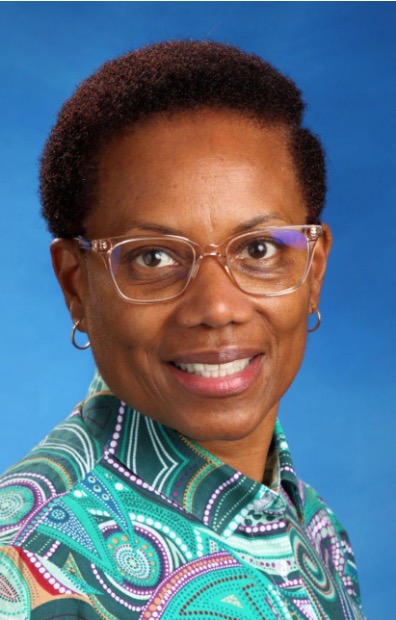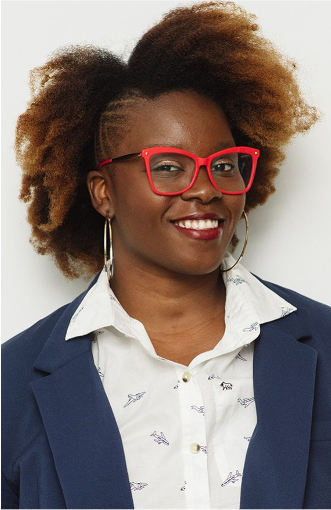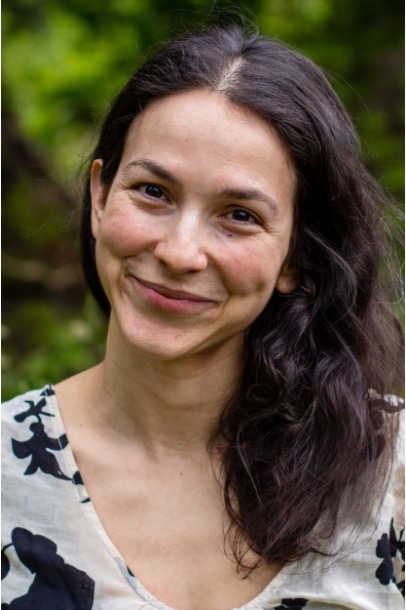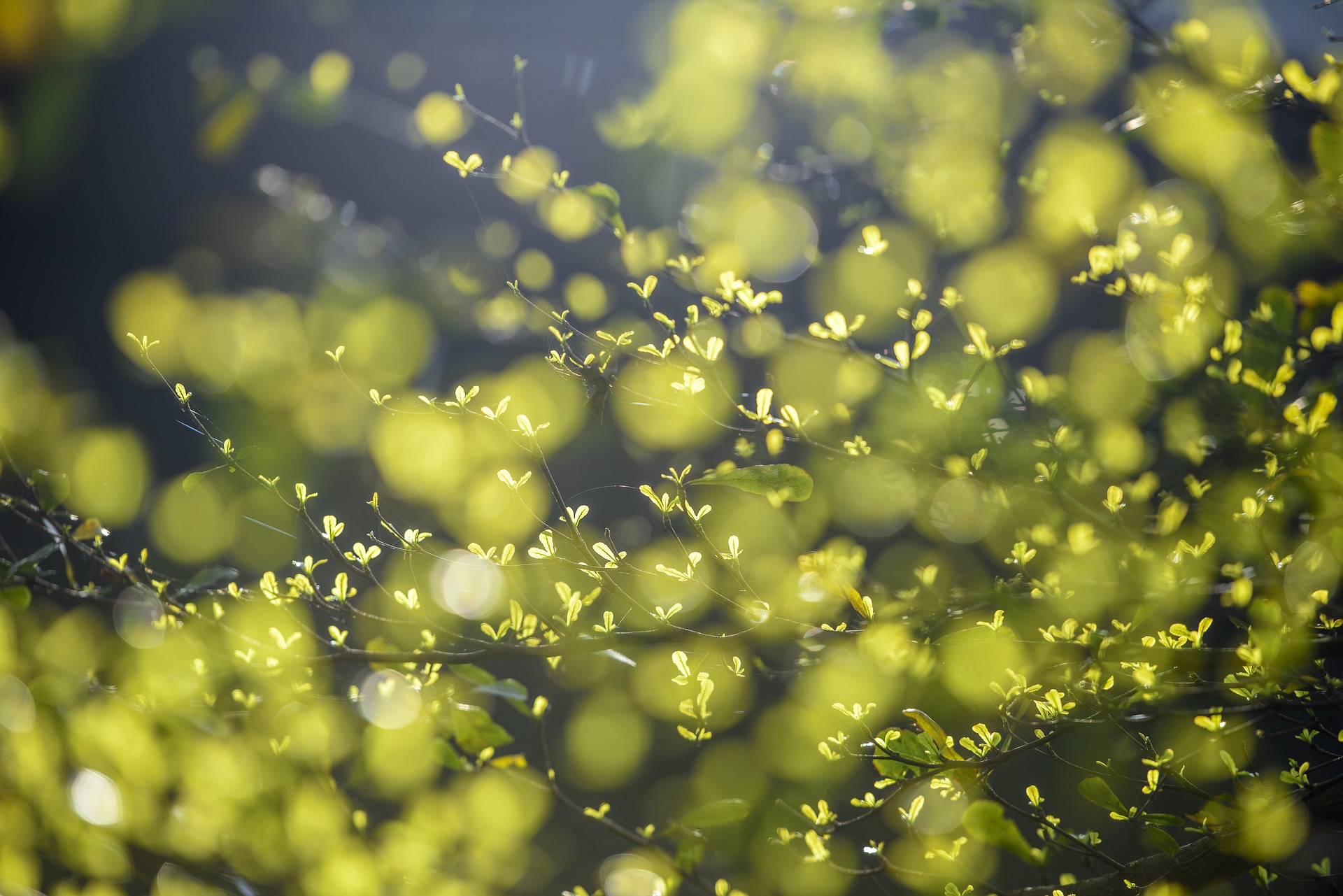Inner Landscapes of Leadership
We are grateful to Jamea Zuberi and Michael Saver for helping us deepen our thinking around what the inner landscapes of leading entails and making connections between ideas that are important to us.
By: Jamea Zuberi and Michael Saver
What are the inner landscapes of our lives, and what is the impact of these landscapes on the purpose and possibilities for leaders and leadership in education?
In Embers, his posthumously published journal, the Ojibway author and storyteller, Richard Wagamese, shared this insight on the connection between inner life and self actualization
“MY SPIRITUAL FATHER once told me, ‘Nothing in the universe ever grew from the outside in.’ I like that. It keeps me grounded. It reminds me to be less concerned with outside answers and more focused on the questions inside. It’s the quest for those answers that will lead me to the highest possible version of myself.”
American poet, writer, commentator, activist, and educator, Nikki Giovanni, in conversation with James Baldwin in A Dialogue expressed this truth: “If you don’t understand yourself, you don’t know anybody else.” To which Baldwin insightfully replied, “Power without some sense of oneself is to me another kind of instability...”
Parker J. Palmer, activist, educator, and author of The Courage to Teach notes, “…from our first days in school, we are taught to listen to everything and everyone but ourselves, to take all our clues about living from people and powers around us.” Yet, “teaching, like any truly human activity, emerges from one’s inwardness, for better or worse. As I teach, I project the condition of my soul onto my students, my subject(s), and our way of being together. The entanglements I experience in the classroom are often no more or less than the convolutions of my inner life.”
In her book, Borderlands/La Frontera: The New Mestiza, Gloria Anzaldúa writes: “The struggle is inner: Chicano, indio, American Indian, mojado, mexicano, immigrant Latino, Anglo in power, working class Anglo, Black, Asian--our psyches resemble the bordertowns and are populated by the same people. The struggle has always been inner, and is played out in outer terrains. Awareness of our situation must come before inner changes, which in turn come before changes in society. Nothing happens in the "real" world unless it first happens in the images in our heads.”
In her book, Sister Outsider: Essays and Speeches, Audre Lorde writes, “The true focus of revolutionary change is never merely the oppressive situations which we seek to escape, but that piece of the oppressor which is planted deep within each of us, and which knows only the oppressors' tactics, the oppressors' relationships.”
As different as the backgrounds of these profound activist thinkers are, they share this in common: an understanding, appreciation and ongoing commitment to exploring the inner landscape of leadership. Others often upheld as models of living and leading with such integrity– bell hooks, Desmond Tutu, Corazon Aquino, the Dalai Lama, - were/are daily committed to the discipline of this inner path. We invite you to join us in this very important dive inward, to the deepest parts of ourselves that yearn for expression and promise.
The Inner Landscape of Leadership emerges from a recognition that beneath the Ego Superego Id or conscious awareness, there is a core reality called by various names –the Self, True Self, the Inner Teacher, in some religious traditions the Soul; perhaps it is best described as ‘the Being in Human Being’. This Self is the intersection of identities and integrity – it is a whole out of the fragments.
Staying in touch with this inner landscape requires leaders' self-discipline and commitment. It needs intentionality, building time, space, incorporating process into a leader’s daily routine. A commitment to honest, structured, on-going self-reflection is a non-negotiable for educational leaders. Without awareness into the ways that our ego mind centers and re-centers a separate self, we unconsciously operate from a place of self-interest and self-protection, furthering individualism at the expense of collective liberation (Shah, 2019). As leaders connect who they are with what they do, they lessen the gap between their inner truth and their way of being in the world (Palmer, 2004). Through this commitment to live and lead with integrity, transformation of self, relationships, systems and ideologies becomes possible. Thus, a leader’s reflective practice should be focused on gaining clarity about the whole of life – becoming more self-aware and accepting both of gifts and strengths as well as challenges and limitations.
Normative ideas of schooling and leadership that uphold binary thinking have emphasized one side of an existential paradox – adopting an either/or approach rather than a both/and approach to our individual and collective experience. School communities are made up of individuals who, while sharing a common goal, are ALSO made up of diverse gifts, abilities, personalities, privileges, entitlements, shadow sides, joys, and fears. An effective community and an effective leadership team needs both – collaboration and individual contributions. The strength of community AND the individual voice and agency. This also shows up in schooling and leadership as majority/minority – often the majority voice and experience is assumed to be normative, with the minority experience either tolerated or viewed as problematic. The paradox is: as human beings we share a biological, cultural, and spiritual connections with all other human and more-than-human beings AND we are unique individuals who share the perspectives and experience of some people more than others. What change is made possible through the embracing of this paradox in education?
“Get with the program!”
“You’ve got a bad attitude!”
“We’re all in this together”
These phrases are often used to critique free thinkers, independent voices, people who speak truth to power, people who “don’t know their place”, “resist too much” or “shine too brightly”. Frequently, they are voices trying to articulate their experiences, interests, and aspirations as communities most misunderstood, misrepresented, and silenced. This may include the perspective of members of racialized communities, the perspective of those who identify as 2SLGBTQ+, the perspective of disabled folks, and more. The pressure to conform is articulated by a form of leadership and followership that best reflects logics of colonialism and white supremacy-upholding the comfort and interests of the dominant group while silencing those at the margins.
Conforming to white, settler, ableist, capitalist logics means that normative notions of leadership lead us away from ourselves, from our deepest knowings, from more fuller expressions and embodiments of who we are and where we have come from, from our ability to connect with others. Notions of exceptional individualism within these logics of leadership are characterized by the exercising of power and control over others and an illusion of certainty and knowing. This kind of leader- ‘the lone wolf’, the hero or ‘the big boss’-is the one who is “always right” and is self-considered to be the locus of truth, expertise and power.
But it doesn’t have to be this way.
Being in touch with more and more of our inner landscapes with humility, humour, and compassion, enables us to see ourselves and others differently as leaders; it helps us to recognize when we project our own fears, hurts and insecurities onto others. It enables us to get out of the way, so that we might see more clearly that student, that parent, that colleague.
Leading from within from that place where identities and integrity intersect, where we can bring our creativity, joy, dreams, complexities, questions, and hopes to our work, helps us to lead and act in more collaborative ways, less concerned and protective of power, and more dedicated to supporting others to live and work in ways that honour their full humanity.
Leading from within grounds leadership in relational accountability and collective responsibility. First and foremost, it means that we must be accountable to inner truth, and that we must see our truth as one of many truths that invites us to live our truth humbly and courageously in community.
Leading from the inner landscape is aspirational. Leaders never reach a place where the learning, healing, embodying, questioning and reflecting are “done”. As communities and circumstances are constantly changing, leaders must ask the question, “What do these new circumstances require of me to live and respond authentically, relationally, and responsibly?”
“Education is ultimately an endeavour in being more human. It demands of us an ongoing commitment to living and working from our whole selves, which includes the magical parts, the sacred parts, the joyful parts, the ignorant parts and the resistant parts. Schooling is a meeting of our deepest passions, our deepest commitments and our deepest fears in relation to those of our colleagues, our students, their families and the communities in which we work.” - Vidya Shah
We invite you to join us in this very important dive inward, to the deepest parts of ourselves that yearn for expression, promise, and liberatory futures*.
Reflection Questions:
- How do we bring more of our whole selves to our work?
- What is the role of awareness, healing, embodiment, joy, and creativity in leading and living?
- How do we make sense of the discrepancies between our inner lives and our outer presence and work in the world? How might our fears, fantasies, desires, worries, etc. influence who we are and how we lead, especially those that lie beneath conscious awareness?
- Who do we need to be to live and lead with greater authenticity, integration, and wholeness?
- How might we apply this understanding to the work we do in communities, schools, and academies?
References
Anzaldúa. (2012). Borderlands/la frontera : the new mestiza (4th ed., 25th anniversary.). Aunt Lute Books.
Baldwin, & Giovanni, N. (1973). A dialogue : James Baldwin [and] Nikki Giovanni (1st ed.). Lippincott.
brown. (2017). Emergent strategy : shaping change, changing worlds. AK Press.
Lorde. (1998). Sister outsider : essays and speeches. Crossing.
Palmer. (1998). The courage to teach : exploring the inner landscape of a teacher’s life (1st ed.). Jossey-Bass.
Palmer. (2004). A hidden wholeness : the journey toward an undivided life (1st ed.). Jossey-Bass.
Shah, V. (2019). Calling in the self: Centering Socially Engaged Buddhism in critical pedagogy through personal narrative. International Journal of Critical Pedagogy, 10(2), 45-67.
Wagamese. (2016). Embers : one Ojibway’s meditations. Douglas & McIntyre.
Additional Recommended Resources:
The Center for Courage & Renewal: https://couragerenewal.org/ (The Center for Courage & Renewal exists to nurture deep integrity and relational trust, building the foundation for a more loving, equitable, and healthy world. Here you will find programs, resources, and connections to help renew your courageous spirit, amplify your inner teacher, and cultivate the stamina to keep showing up for yourself, others, and the causes you care about.)
Magee. (2019). The inner work of racial justice : healing ourselves and transforming our communities through mindfulness. TarcherPerigee.
Menakem. (2017). My grandmother’s hands : racialized trauma and the pathway to mending our hearts and bodies. Central Recovery Press.
Miller, Irwin, M., & Nigh, K. (2014). Teaching from the thinking heart : the practice of holistic education (Miller, M. Irwin, & K. Nigh, Eds.). Information Age Publishing, Inc.
Palmer. (2000). Let your life speak : listening for the voice of vocation. Jossey-Bass.
Palmer, Zajonc, A., & Scribner, M. (2010). The heart of higher education: a call to renewal: transforming the academy through collegial conversations. Jossey-Bass.
Shah, V. (2022). Critical, interconnected approaches to professional engagements. The Journal of Educational Foundations, 35 (1), 52-79.
Shah, V., Aoudeh, N., Cuglievan-Mindreau, G., & Flessa, J. (2022). Subverting Whiteness and Amplifying Anti-Racisms: Mid-Level District Leadership for Racial Justice. Journal of School Leadership. https://doi.org/10.1177/10526846221095752
Stein, S. (2021, February 15). Anti-assholism memo. Gesturing Towards Decolonial Futures. https://decolonialfutures.net/portfolio/anti-assholism-memo/
Gesturing Toward De-Colonial Futures: https://decolonialfutures.net/
Hemphill, Prentis, Finding Our Way Podcasts: https://podcasts.apple.com/ca/podcast/finding-our-way/id1519965068
Leadership Learning: https://leadershiplearning.org/webinar/llp-webinar-series-2021-session-1 that is part of: https://leadershiplearning.org/leadership-webinars
Liberatory Leadership: https://www.liberatoryleadership.org/
*The Liberatory Leadership Partnership the Leadership Learning Community, define liberation and liberatory leadership in the following ways:
While there are many ways one can describe liberation, in its simplest terms, liberation is the experience of wholeness, freedom, justice, and thriving. Liberatory leadership invites leaders to operationalize this vision of personal and collective freedom, justice, and thriving through their individual approaches and through their organizations. It necessitates an internal interrogation of how race, gender, and power interact with our work. As part of the Liberatory Leadership Partnership, we are exploring what supports and what gets in the way of living out these compelling visions and identifying promising practices that we can try on to right the balance.
They identify the spaces, resources, and allowances as supports for experimentation with liberatory leadership. They also speak to the importance of resources for restoration and healing. They also speak to the tools needed to practice liberatory leadership, such as seeking our collective north star, reimagining our tools, learning about generative conflict, starting the work before the conflict, valuing relationships and rest, resource healing and restoration, and examining our relationship to power.
Panelists
Jamea Zuberi
Ms. Jamea Zuberi has completed her education in the faculties of Education at both York University and The University of Toronto and over the last 27 years has enjoy an illustrious career in the field as a teacher, administrator, curriculum writer and award recipient. She is particularly proud of having over 30 years of engaging, educating and leading young people in community work with a focus on her own beloved Jane and Finch community. Her equity, inclusion and anti-oppression work in education finds it’s roots, at The Linden School for girls-Canada’s first feminist girl’s school to her present work at the Toronto District School Board-TDSB where she leads the African Heritage Committee with anti-black racism and multi-centric lens. In 2011 Jamea was awarded The Harmony Movement ‘be the change’ Educator award. Ms. Zuberi is credited as the founder of Blockorama which after 24 years is still the only black stage at the 2SLGBTTIQQ+ Pride Toronto Festival. In 2012 Ms. Zuberi was the proud recipient of the Pan Arts Network’s -“Woman in Pan” Award for her contribution to developing the pan movement in Toronto community and schools as the co-founder of The Panatics Steelband Network to the Director and founder of the North Stars Children Steel Orchestra.

Michael Saver
An educator for 37 years, Michael Saver, OCT, M. Div., currently operates his own professional development and consulting company. His professional experience includes designing and leading PD programs for system leaders and other educators, pre-service and Additional Qualification teacher education, keynote and workshop presentations, professional regulation and education policy development, accrediting teacher education programs, as well as classroom teaching and group facilitation in a variety of contexts. His work supports system change that is grounded in anti-racist and anti-oppressive principles.
Mike’s particular area of expertise is in the development of trustworthy and collaborative relationships in professional communities. He has twenty years’ experience as a certified Courage to Teach/Courage to Lead/Circle of Trust facilitator with the Center for Courage and Renewal, introducing those programs to Canada and leading programs for educators across the country and in Australia. He is the author of recently published articles on Relational Trust in Education, Integrity in Leadership, and Leading Beyond Performative Action.

Yamikani Msosa
Yamikani Msosa (they/them or ze-hir) is a Black genderqueer Malawian arrivant currently living in Tkaronto.
As creative, strategic consultant and facilitator, they love building containers for connections to be forged and holding space for individual, community, and systems transformation. Yamikani is committed to a practice of anti-racism & anti-oppression, using popular culture, creative facilitation, emergent strategy and digital engagement. They completed hir Master’s degree in Women and Gender Studies at Carleton University, and a Certificate from Michigan State University in Equity, Diversity and Inclusion, and Organizational Change. In 2013 they founded UBUNTU Consulting, which focuses on equity, anti-oppression practices, conflict resolution and organizational change development for grassroots organizations and nonprofit agencies. Currently, Yami works for the Ontario Nonprofit Network as the Network Engagement Manager, focusing on Decent Work for BIPOC workers across Ontario.
In hir spare time Yami teaches yoga to survivors of sexual and gender-based violence & Yoga for Black Grief.

Sharon Stein
Sharon Stein is an Assistant Professor in the Department of Educational Studies at the University of British Columbia. Her work offers analyses and practical pedagogical interventions that seek to confront colonialism in various sectors of society, especially education. In this work, she invites people to interrupt, denaturalize, and reframe dominant imaginaries of justice, responsibility, and sustainability, and engage with the intellectual, affective, and relational dimensions of social and global change. She is founder of the Critical Internationalization Studies Network, and a founding member of the Gesturing Towards Decolonial Futures collective. Her forthcoming book, Unsettling the University, will be released by Johns Hopkins University Press later this year, and her co-authored workbook, Developing stamina for decolonizing higher education is available here.


